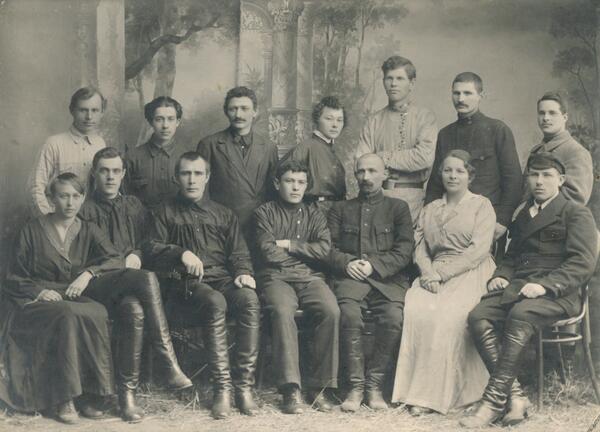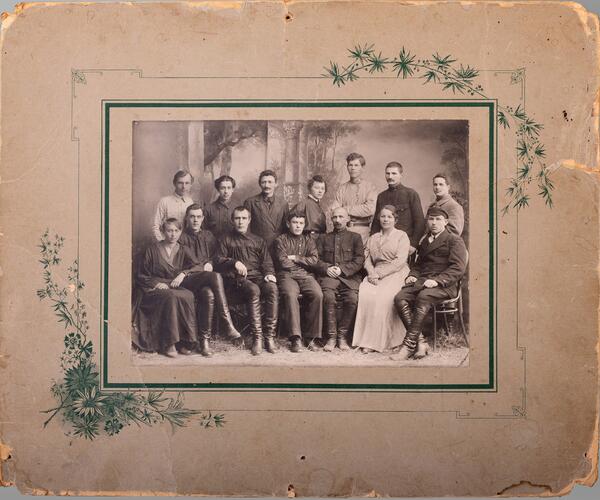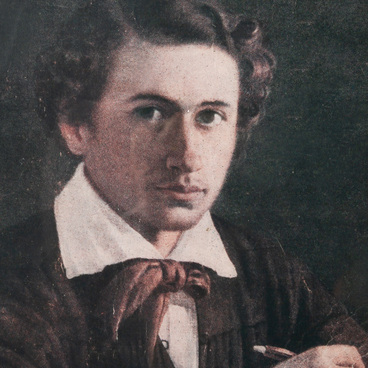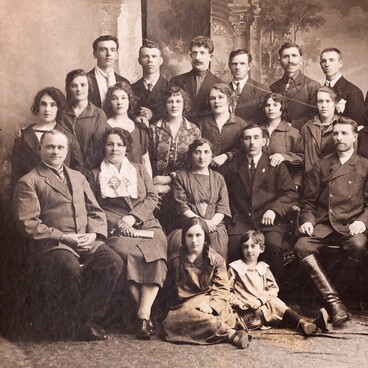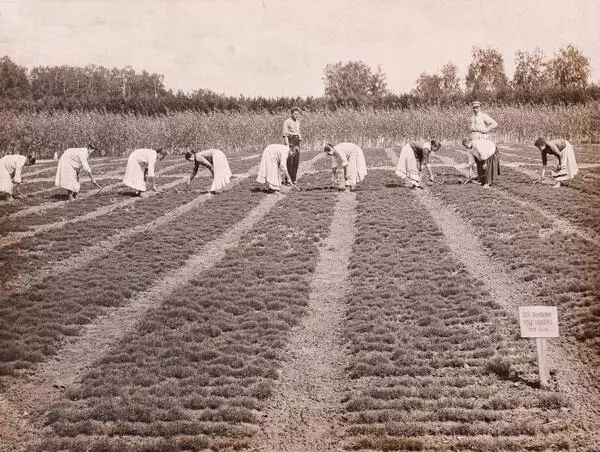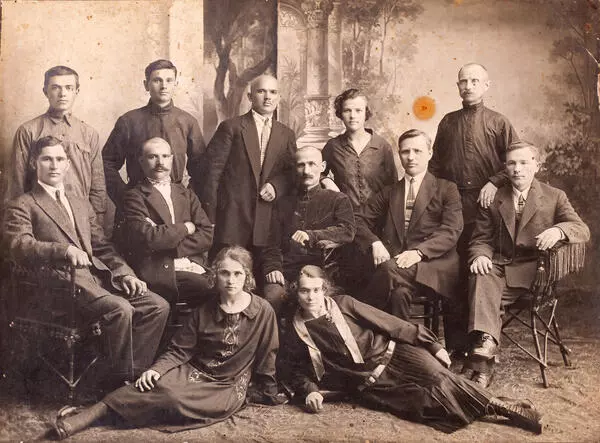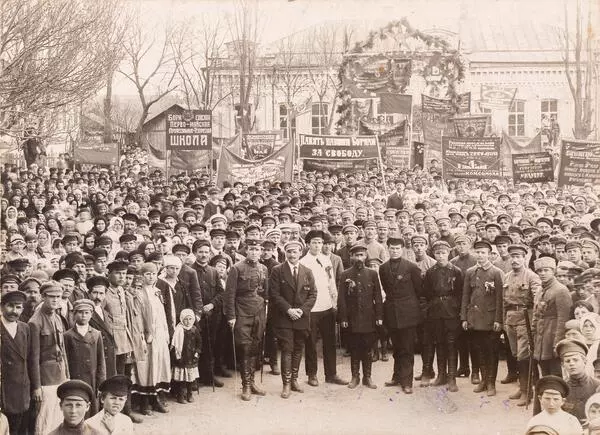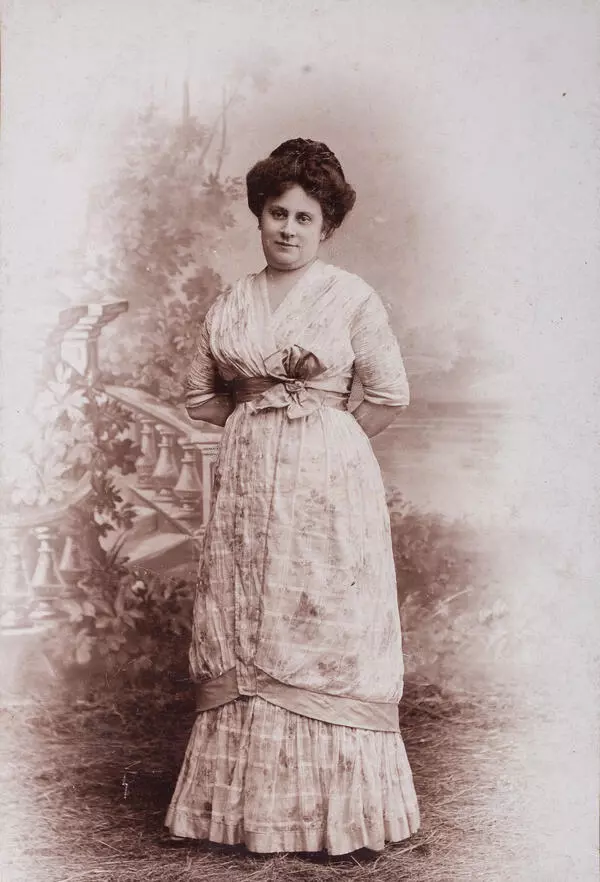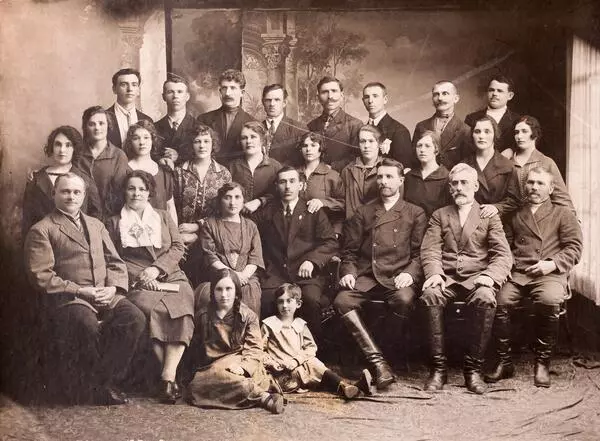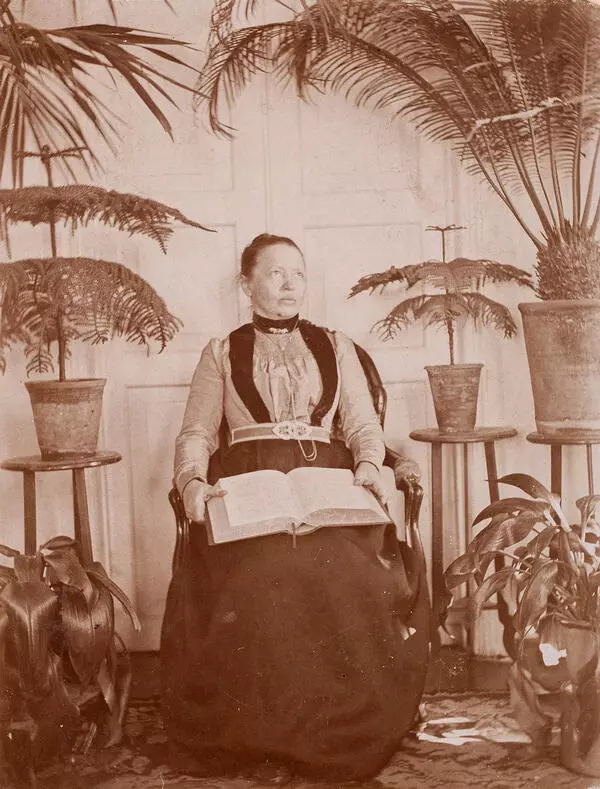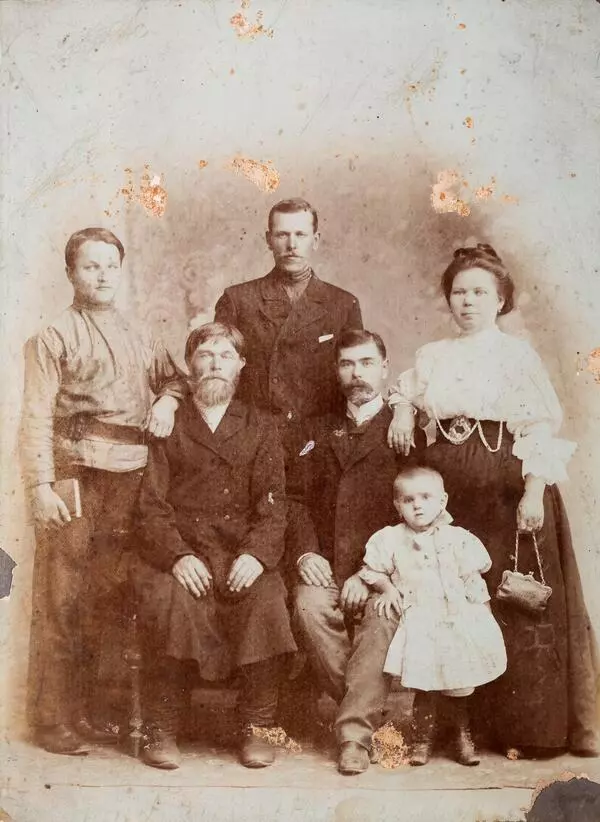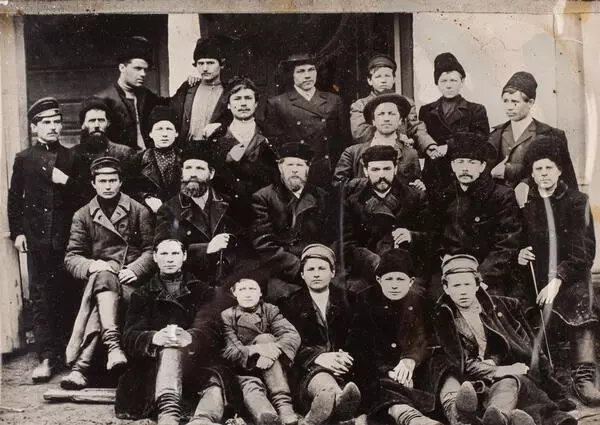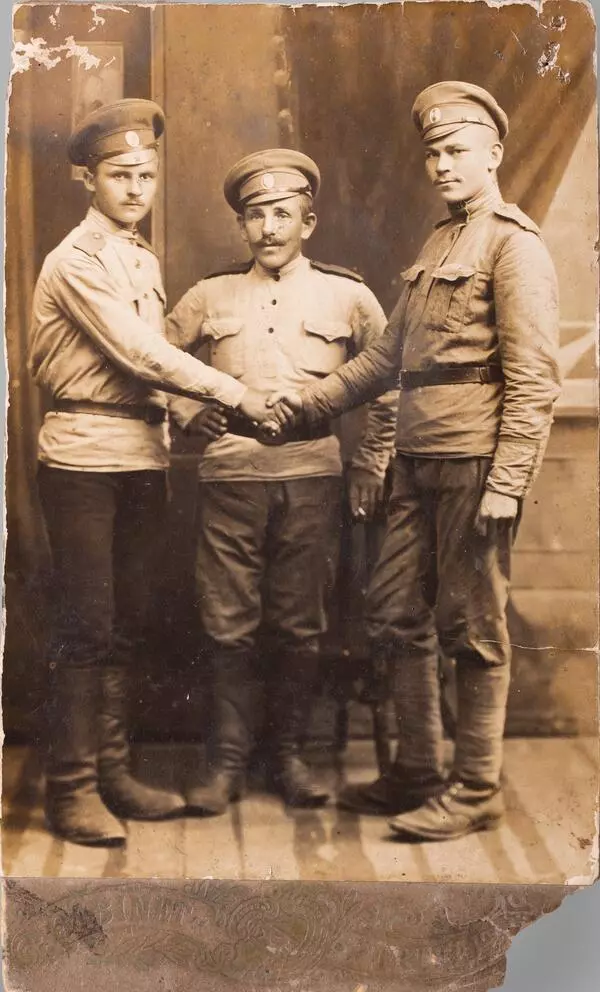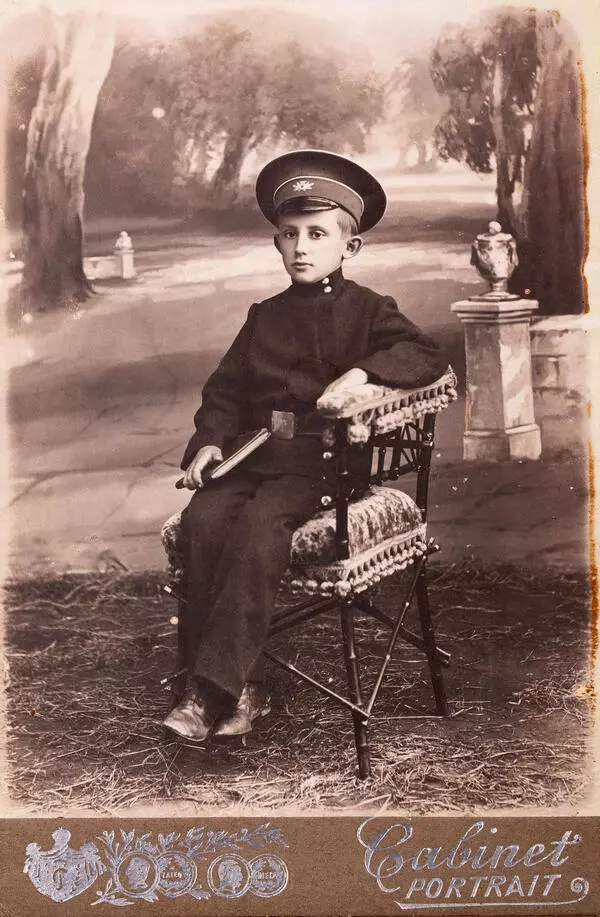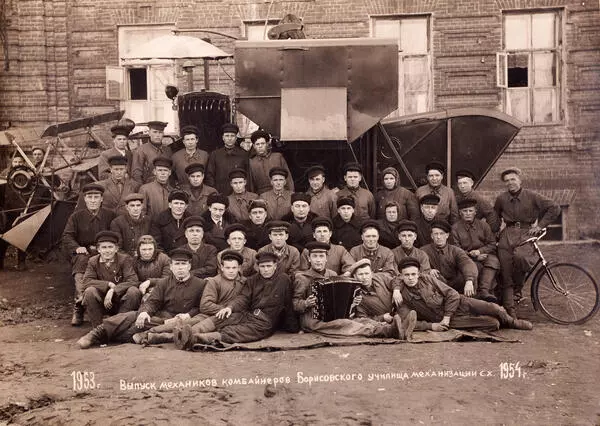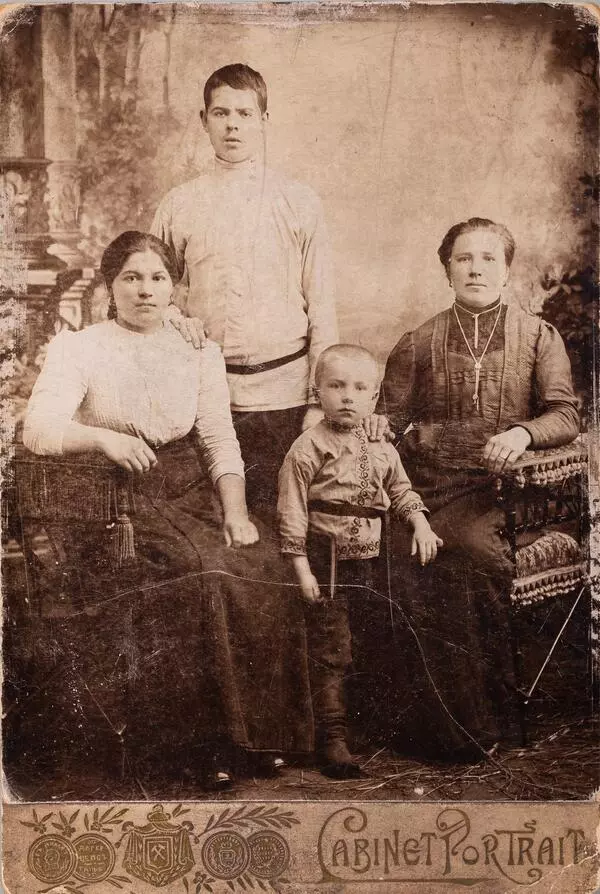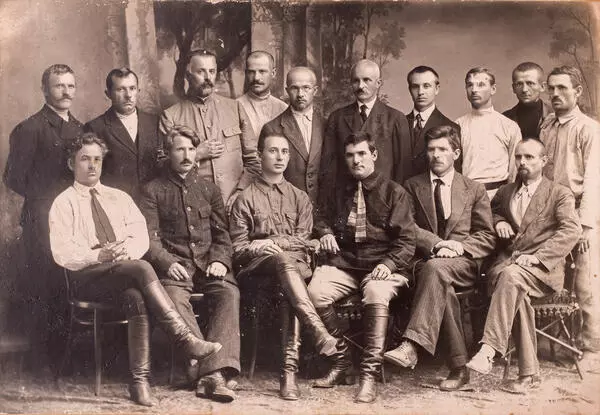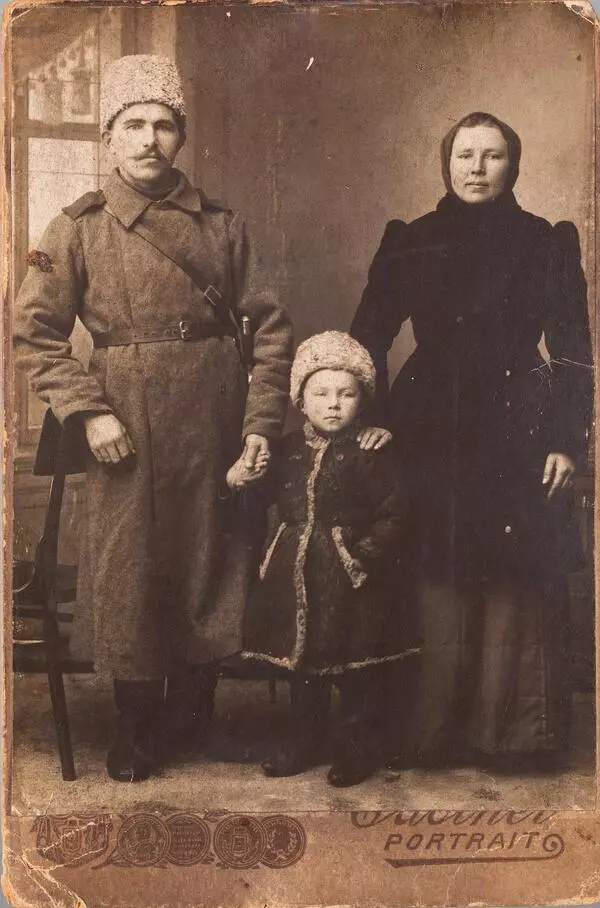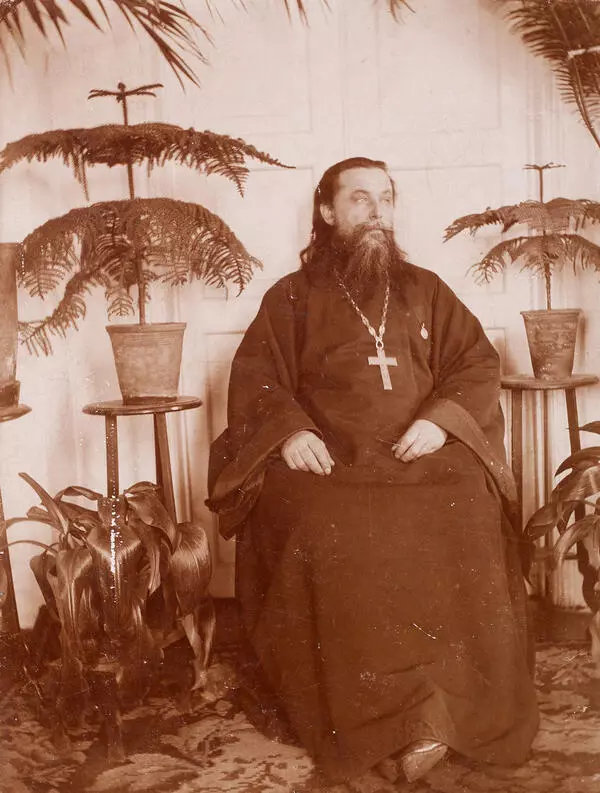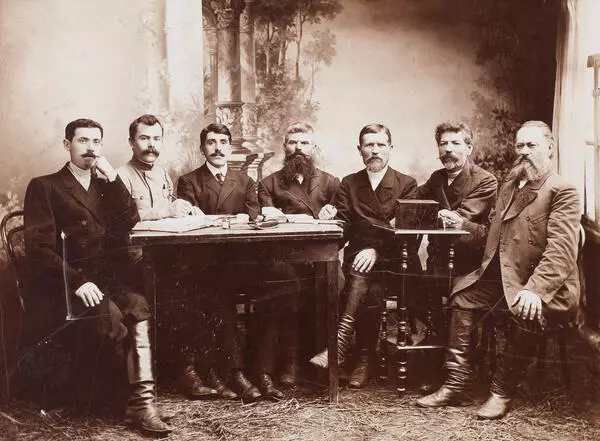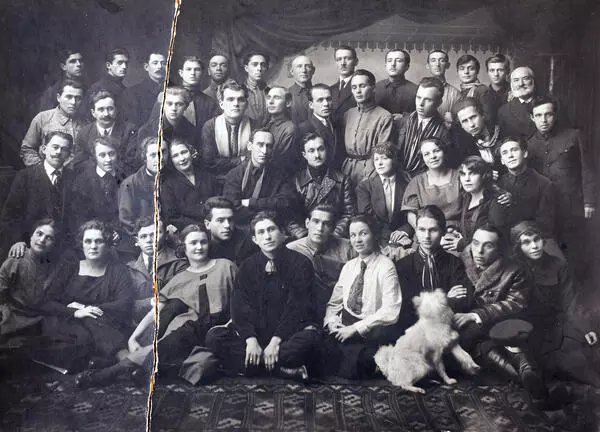Alexandra Fyodorovna Dyumina was born in 1887 in Borisovka and in 53 years of stage life became famous far beyond the borders of her small homeland. Her theatrical career began at a time when the public was already familiar with the actresses Polina Antipyevna Strepetova, Maria Nikolayevna Yermolova, and Vera Fyodorovna Komissarzhevskaya. As a very young girl, Alexandra Dyumina worked as a nanny in the house of Pavel Yakovlevich Barvinsky. He saw her as a potential talent and once stated: “I will try to make an actress out of you.”
Dyumina rehearsed her first roles in a barn, and curious spectators watched her through its cracks; these were dramatic roles, she played tragic heroes. Having first appeared on stage in the Borisovskaya Sloboda of the Kursk Governorate, Alexandra Fyodorovna subsequently worked in theaters in Moscow, St. Petersburg, Kyiv, Odessa, Riga, Tallinn, in the traveling Kharkiv Workers’ Theater, which then only began its work.
Dyumina’s acting life was a service in the literal sense of the word: she constantly traveled and lived in harsh conditions. With the Kharkiv troupe, she received Red Army rations for food.
The actress especially loved performing the role of Lyubov Andreevna Kruchinina from Alexander Nikolayevich Ostrovsky’s play “Guilty Without Fault”. She felt connected to this image of a sensitive, kind woman, always ready to listen to someone else’s grief and come to their aid. She saw it not only as a stage role, but also as a role model in life.
After retiring, Alexandra Dyumina devoted herself to the development of the folk theater in her native Borisovka, continuing the work of Pavel Barvinsky. She dreamed of a major, serious production, and her choice fell on Semen Stepanovich Hulak-Artemovsky’s opera “A Zaporozhian Cossack Beyond the Danube”.
The events of the opera unfold in the 18th century in the Ottoman Empire. After the destruction of the Cossack stronghold by the Moscow troops, some Cossacks fled to Turkey, but did not find happiness there: the Turkish sultan tried to agitate the Cossack regiments to fight against their homeland, but in the end, fearing unreliable subjects, let them go in peace. The main idea of the opera is love for one’s native country and the dream of returning there. Developing the plot, Hulak-Artemovsky tried to create vivid character types of the Ukrainian people, to include motifs of local life and songs in the work. All this echoed Dyumina’s ideas.
She chose performers by attending drama and choral classes. Few believed in the success of such a large-scale undertaking, but despite the fears, the production was a resounding success.
Dyumina rehearsed her first roles in a barn, and curious spectators watched her through its cracks; these were dramatic roles, she played tragic heroes. Having first appeared on stage in the Borisovskaya Sloboda of the Kursk Governorate, Alexandra Fyodorovna subsequently worked in theaters in Moscow, St. Petersburg, Kyiv, Odessa, Riga, Tallinn, in the traveling Kharkiv Workers’ Theater, which then only began its work.
Dyumina’s acting life was a service in the literal sense of the word: she constantly traveled and lived in harsh conditions. With the Kharkiv troupe, she received Red Army rations for food.
The actress especially loved performing the role of Lyubov Andreevna Kruchinina from Alexander Nikolayevich Ostrovsky’s play “Guilty Without Fault”. She felt connected to this image of a sensitive, kind woman, always ready to listen to someone else’s grief and come to their aid. She saw it not only as a stage role, but also as a role model in life.
After retiring, Alexandra Dyumina devoted herself to the development of the folk theater in her native Borisovka, continuing the work of Pavel Barvinsky. She dreamed of a major, serious production, and her choice fell on Semen Stepanovich Hulak-Artemovsky’s opera “A Zaporozhian Cossack Beyond the Danube”.
The events of the opera unfold in the 18th century in the Ottoman Empire. After the destruction of the Cossack stronghold by the Moscow troops, some Cossacks fled to Turkey, but did not find happiness there: the Turkish sultan tried to agitate the Cossack regiments to fight against their homeland, but in the end, fearing unreliable subjects, let them go in peace. The main idea of the opera is love for one’s native country and the dream of returning there. Developing the plot, Hulak-Artemovsky tried to create vivid character types of the Ukrainian people, to include motifs of local life and songs in the work. All this echoed Dyumina’s ideas.
She chose performers by attending drama and choral classes. Few believed in the success of such a large-scale undertaking, but despite the fears, the production was a resounding success.

